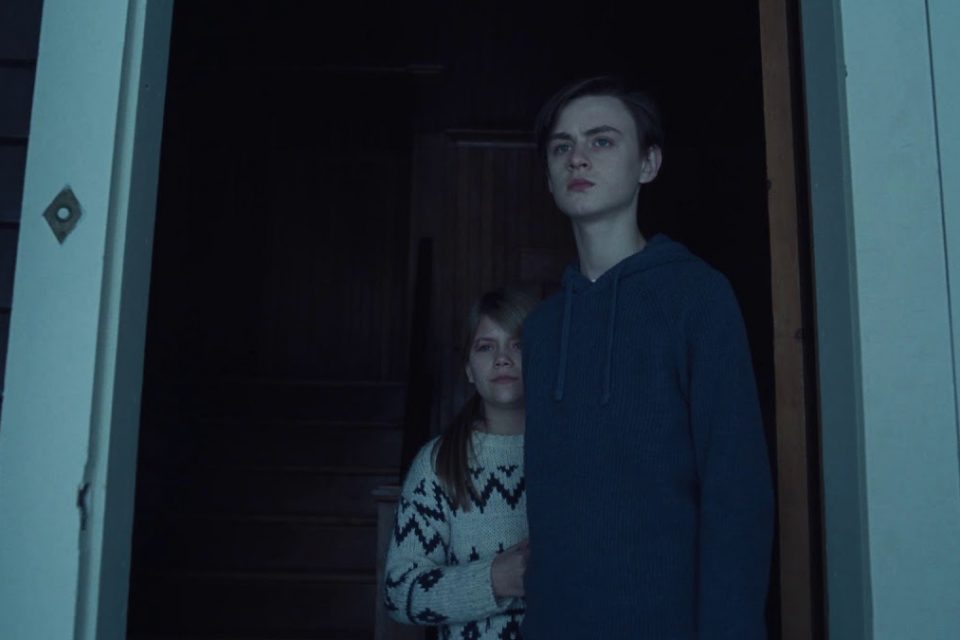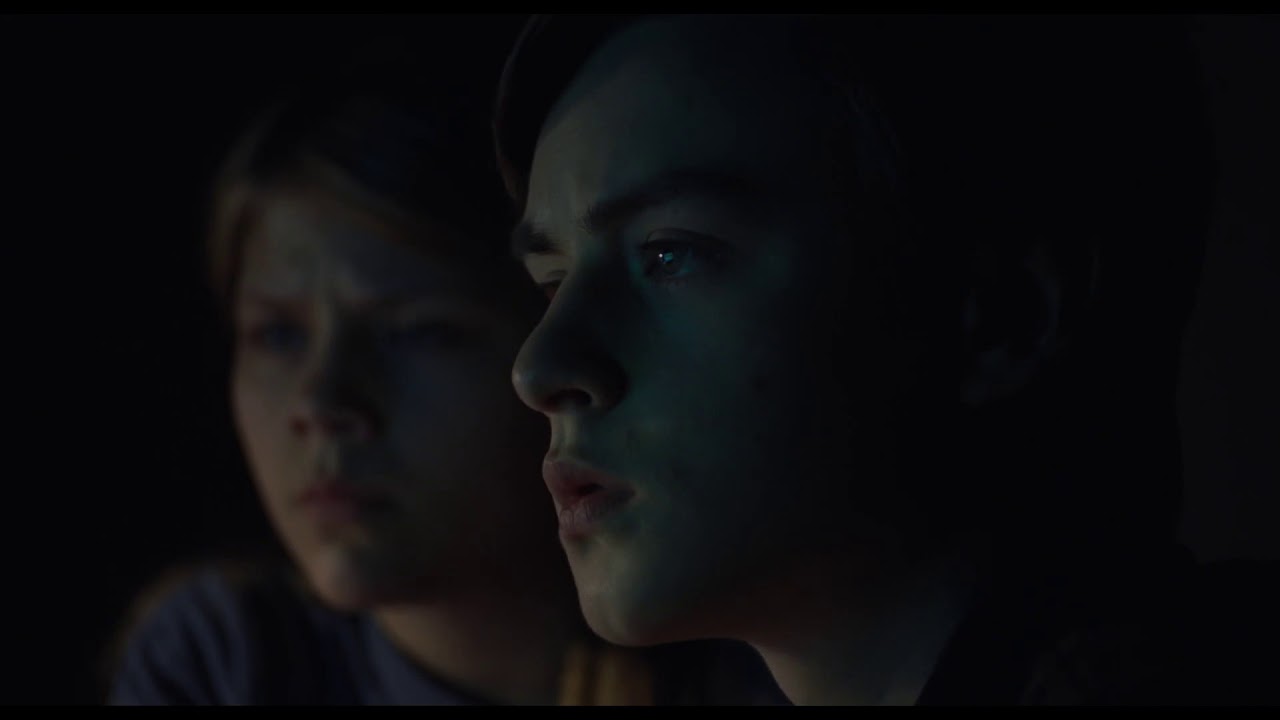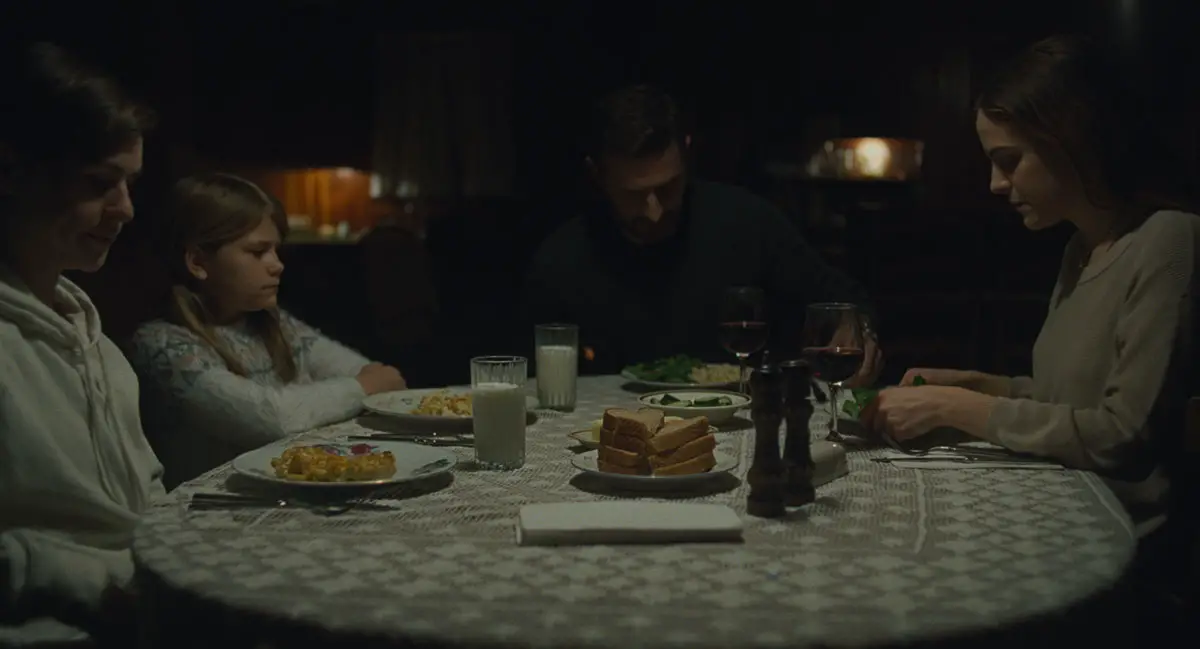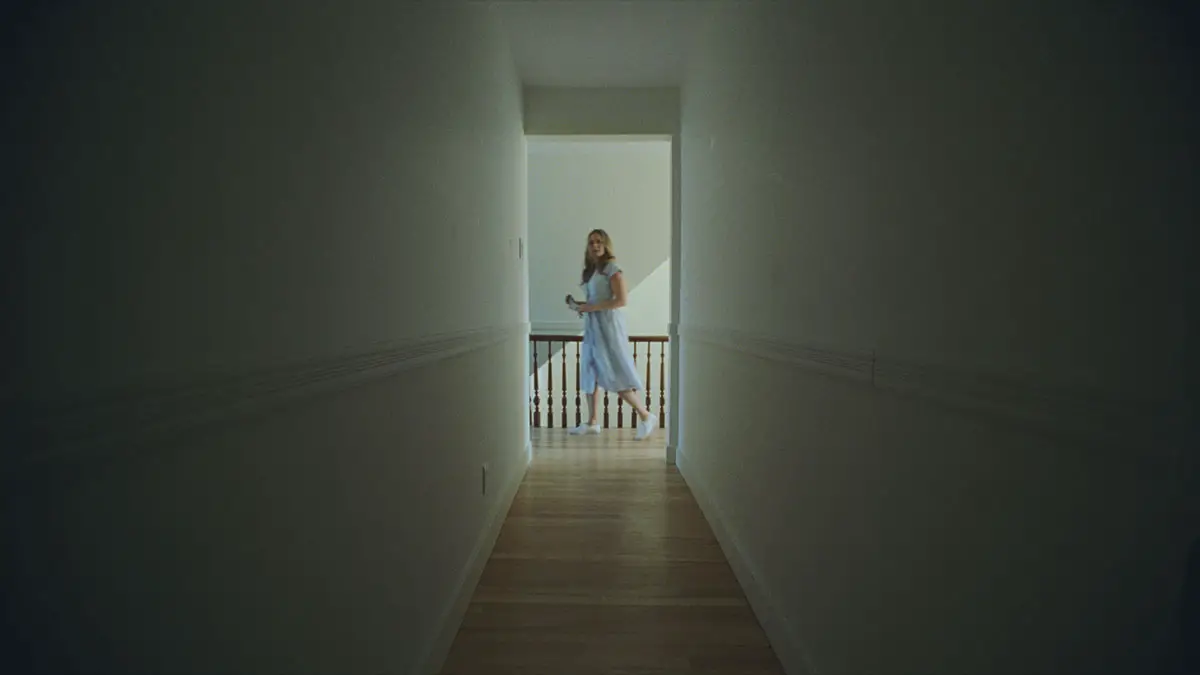‘The Lodge’ Spoiler Review: “An Emotional Beating”

The Lodge is one ugly, snarling movie. The type of horror flick that is not afraid to go there. And in some ways, it almost feels unnatural to watch it with strangers, much less write about it in detail for an audience.
This movie is violent, but not for the reasons you might come to expect from horror. It is far too ugly to feel like a story of make-believe, and has more to share with the texting suicide case than anything else before it. As far as I am aware, there is not an MPAA rating for this level of psychological hell, much like there is not a law making it a crime to encourage suicide. And to a panel of board members, gaslighting is probably just dialogue like all the rest, which is why I find The Lodge so nasty. It is horrifying to think that emotional abuse is not really understood. Its effects may be invisible, but it does not make it any less cruel. After all, some scars run deeper than the patterns on our skin.
The Lodge begins with a tragedy for two children. Their mother kills herself. And the new stepmother, Grace, is to blame. Grace is the sole survivor of a mass cult suicide. But before we get there, our perspective sides with the children in unforgiving detail.
Directors Veronika Franza and Severin Fiala do not show us grief, they subject us to it like a beating. In one instance, we watch Mia, the younger daughter, as she concludes that her mother is not going to heaven. I find it difficult to say anything about this scene. Maybe it is because her yelps have little space to breathe in front of Bakatakis’ camera. But it just does not feel like a movie. I cannot even convince myself that this little girl, Lia McHugh, is acting. Everything about this scene feels suspended in its own misery like being caught within the glass of a snow globe.
And every single sound heightens this disgust and irritation. Whole dinner tables become battlegrounds for psychological warfare, where forks clink along plates and lips smack with food. Every sound reverberates with hatred for a woman we have yet to meet. It was enough to leave me wincing in my seat before their father broke the news about Christmas vacation.
It is surreal to think that Grace’s Riley Keough and Laura’s Alicia Silverstone are two totally different people. Nine months have passed, and yet I could have sworn the woman in the trailer was Silverstone. But I was wrong. It reminds me of all the times I have ever encountered strangers that look like my closest friends in public. On first glance, there is obvious joy, but it only takes a second longer to have that same happiness ripped out of my hands. The only thing left to fill them is disappointment, and before long that disappointment mutates into something like contempt. I cannot quite explain it, and maybe I have revealed too much on the subject, but this fury is brought to life in The Lodge.
For them, Grace is merely a shade of their dead mother. Her features and complexion are only reminders of what they have lost. All at the hands of a copycat. A look-alike, a fraud. They cannot look at Grace without seeing a trace of their mother, a trace lost somewhere between the positions of her eyes, mouth, and nose. Taken altogether, those feature almost become a mockery of their mother’s, and maybe one day they will soon forget what she ever looked like. They will only be able to see Grace’s face intrude every intimate memory they have left of their mother. In short, this is a brilliant casting choice.
It makes me so uncomfortable to say that I understand Aiden and Mia, but I would be lying if I said I didn’t. Even when they set out to destroy Grace, by cutting the electricity, the gas, and throwing out all of their belongings into the snow, I still feel a shred of empathy for them at the end of the film. Franza and Fiala want to make you squirm.
READ: Fantastic Fest Review: ‘The Lodge’ Weaponizes Emotion For An Unforgettable Horror Masterwork”
The directors dare to bring each audience member down to size by securing our empathy in all the wrong places. For example, look at the triptych structure. In the beginning, we side with the children, we learn about their fears and sufferings before we meet Grace. But before we know it, our perspective switches in favor of her. Immediately, we turn against Mia and Aiden. They become monsters. It becomes too easy to nearly forget what they had experienced only six months ago, or mere minutes before in the film. Suddenly, there is an emotional distance situated between us and them, a distance of many miles that prevents any stretch of empathy. Even if you were to stretch your feelings towards the children, it would be like a rubber band recoiling back to snap at the corner of your hand.
After we reach the feverish climax of the story, our perspective runs back to the children one last time. As much as I am still in denial about it, the children are evil. What they did was not a prank, though it only seems to be misconstrued that way because we do not accept emotional violence the same way we do physical violence. This is an exploitation of trauma. A ploy for self-destruction without ever having to pull the trigger. And maybe it is a testament to The Lodge, but this movie wants to keep you in denial. Franza and Fiala want to trick you into making excuses for evil. Gaslighting has this insidious way of making victims feel like the bad guys, and it could not be more readily apparent than here.
It has been three days since I first watched The Lodge, and it still gives me anxiety to hear that Aiden and Mia deserved it. I still feel uncomfortable with this proposition. I do not want to believe it. It is too ugly a truth for me to bear. The sound of their hoarse screams and the final shot of a loaded gun are like hooks. They stab me into feeling for them. I have been manipulated too. – Daniel Hrncir
Rating: 10/10
The Lodge is now playing in theaters.
The film stars Riley Keough, Jaedan Martell, Lia McHugh, Richard Armitage, Alicia Silverstone, and Katelyn Wells.





